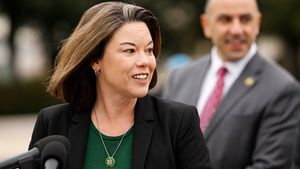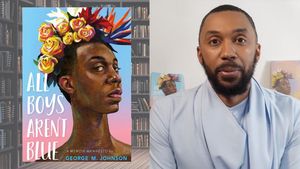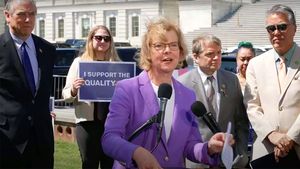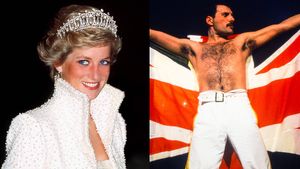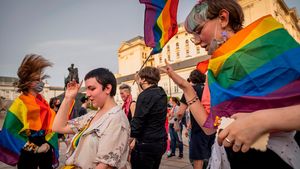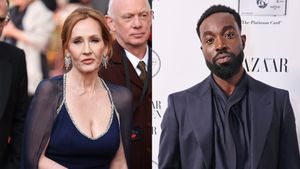Hollywood was shocked last month when startling allegations came to light about executive producer and showrunner Bryan Fuller after Sam Wineman brought forward a lawsuit alleging he endured bullying, discrimination, sexual harassment, sexual assault, and retaliation during the production of the documentary series Queer For Fear.
Wineman, who worked as a series producer on the series, claims in the lawsuit that Fuller—famous for creating shows like Hannibal and Pushing Daisies—sexually harassed and sexually assaulted him while they were working together on Queer For Fear in 2020. Both Fuller and Wineman are out gay men.
Now, 14 people involved with the series are disputing Wineman’s account of the events in a new exposé published by Variety on Nov. 2. Those who have come forward say that they never witnessed any of the misconduct alleged in the lawsuit and further claim that Wineman wasn’t good at his job.
One of the most disturbing allegations in the lawsuit stems from an incident involving Fuller cracking Wineman’s back, where he was “completely restricted from movement as Mr. Fuller pressed his penis against [Wineman’s] buttocks, holding it there so [Wineman] could feel it through the fabric of Mr. Fuller’s track pants,” according to the suit.
Steak House, one of the executive producers, told Variety that he was there when the “back cracking” incident took place and that Wineman has mischaracterized what happened.
“The back-cracking incident — I was standing right there,” House told the outlet. “I hear [Wineman say] what sounds like, ‘My back hurts.’ Bryan is like, ‘Oh do you want me to crack your back?’ Bryan does my back right after, and it’s in front of a number of people on the crew. If anything were to have happened, then somebody on the crew would have gone, ‘Oh, that was weird or something.’ There was nothing out of turn in that incident.”
Queer For Fear is a four-part docu-series that detailed the history of the LGBTQ+ community in the horror genre and reexamined horror through a queer lens. The suit also alleges that House ignored Wineman's complaints of harassment, but sources who spoke to Variety said House went out of his way to make sure everyone involved in production felt comfortable given that discussing queer horror meant there needed to be frank discussion of sex.
“I read the allegations, and some of the topics of conversation that are alleged to have been perceived as harassment, those topics of conversation weren’t pointed at Sam or anyone specifically,” Christian Lainez, a sound mixer on the project, said. “They were part of a group conversation. You can’t talk about queer film and queer cinema without brushing on the topic of sex.”
Also among the 14 people who have come forward is editor David Kittredge, who said that Wineman’s version of events didn’t “comport in any way” with his “experience of working with Byran” and that Wineman didn’t do a good job when working on Queer For Fear.
“Sam’s [version of the series] wasn’t really coherent,” Kittredge said. “It didn’t really tell a story. It didn’t really inform about the history of queer horror. It was more like ‘The Sam Wineman Show.’ We needed to reshoot the interviews.”







